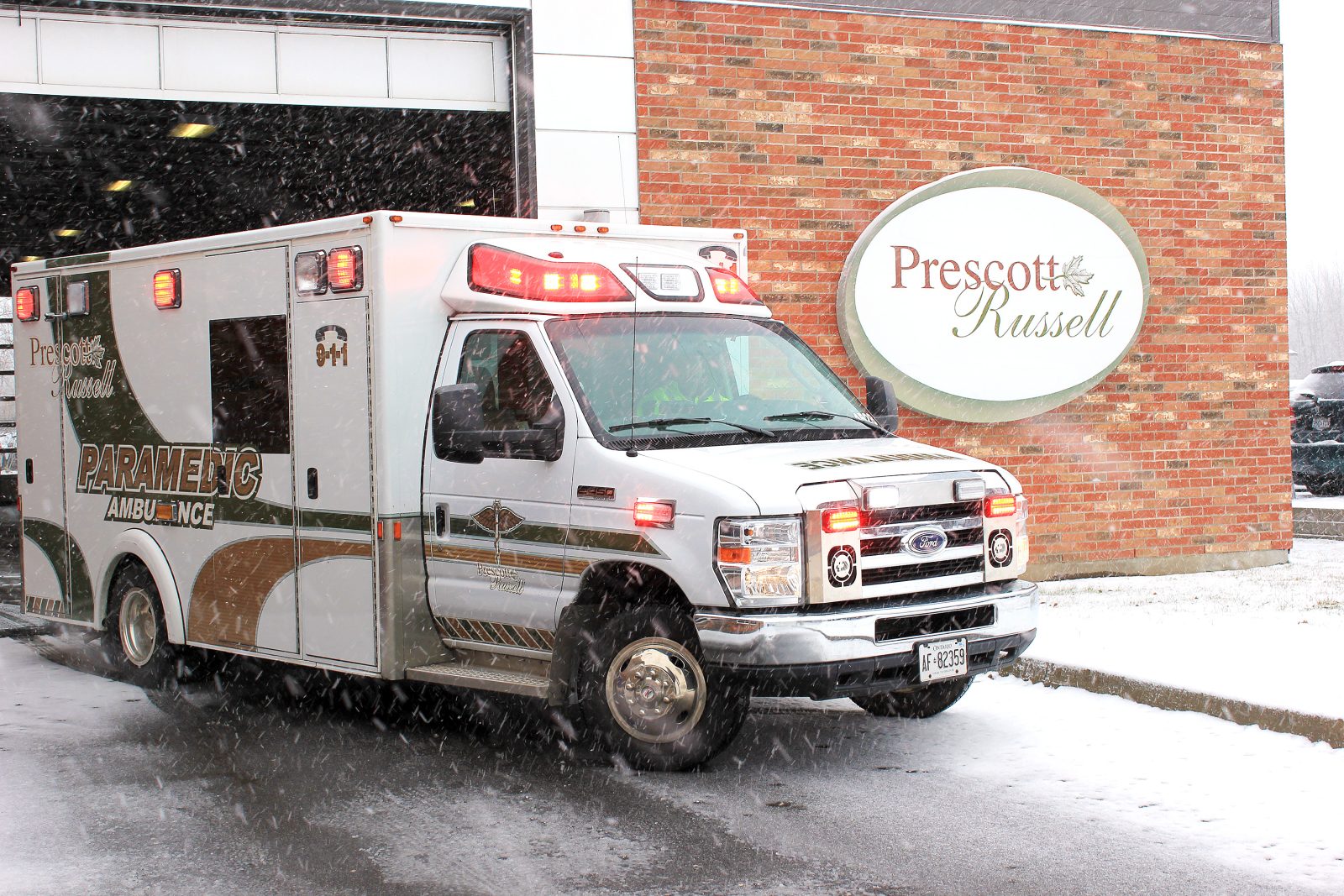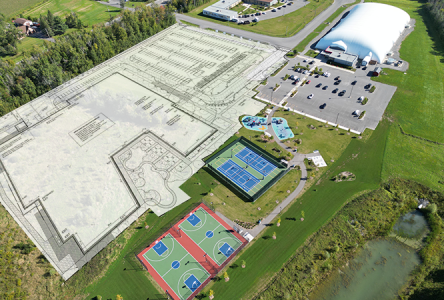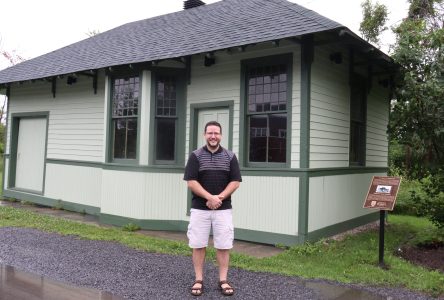Limoges resident who waited 25 minutes for paramedics after her husband had a heart attack is questioning whether Prescott-Russell’s emergency services meet the needs of the community, as ambulances are often sent to support Ottawa and other neighbouring municipalities.
Micheline Lajoie, a 59-year-old resident of Limoges, called 9-1-1 at 9:09 p.m. from her home on Beaver Lane in The Nation for her husband who was having a heart attack. The Prescott-Russell paramedic services ambulance arrived at 9:33 p.m., 25 minutes later. They arrived at the Ottawa Hospital at 10:20 p.m. Thankfully, Lajoie’s husband, Emile Lajoie, 59, made it to the hospital on time to receive appropriate care.
The next day, Lajoie posted to Facebook expressing her anger towards the time she had to wait to get an ambulance.
“The paramedic told us we were lucky as they had spent most of the evening answering calls in Ottawa,” she wrote in the post. The ambulance who had showed up at her house after the call came from Embrun, a village about 10 kilometres from where Lajoie lives.
Many people in the comments of the post shared similar experiences.
Lajoie tagged the mayor of The Nation, Francis Brière on the post. Answering Lajoie through direct message on Facebook, the major said he would “bring it to the attention of the staff member responsible for the ambulance service of the county.”
“Our current agreement with the city of Ottawa is one that simply doesn’t work for us in Prescott-Russell as the city ends up using our ambulances because of the current system in place,” he added.
“I don’t know if he can really do anything or not,” said Lajoie in response to the mayor’s message. “Why should I wait over 20 minutes for an ambulance? It seems to me that we should have services a little faster than that. We should look at how to improve the entire service because it’s doesn’t meet the community’s needs anymore.”
UCPR paramedics supporting Ottawa emergency services
According to Marc-André Périard, director of the UCPR’s emergency services, there are 11 emergency vehicles covering more 2,002 square kilometres, serving more than 100,000 people. Prescott-Russell emergency services operate seven ambulances around the clock, 365 days per year. Two more ambulances are available seven days a week from 10 a.m. until 10 p.m. Monday to Sundays, in addition to two paramedic response units patrolling the areas.
However, the ambulances are also responding to calls for support in neighbouring communities in the United Counties of Stormont, Dundas and Glengarry and Ottawa.
In 2023, Prescott-Russell emergency services answered more than 15,000 calls in 2023, with more than 20 per cent, over 3,000, of those calls coming from neighbouring communities.
Adding to the wait times is the hospitals capacity to take new patients and the availability of emergency department beds, a problem faced by emergency rooms across the province. Paramedics cannot leave a patient they have transported to the hospital before the emergency department can receive them, forcing the ambulance to stay in the ambulance bay with the patient.
«The paramedics arrive at the emergency room, go see the triage nurse and then as soon as they have a bed they can clear the stretcher and then come back to the United Counties of Prescott and Russell,» said Périard.
Causing additional delays, under the current system, 9-1-1 calls are either classified as an emergency that requires an ambulance with lights or without lights, with no distinction of the severity between the two.
«As a result, as soon as an ambulance is free, it has to be sent out on a call that may not be critical. Then a critical call comes in, and that person must wait longer than they should.”
Changes coming
During the next UCPR council meeting on Wednesday, March 27, the implementation of a new call prioritization system will be presented which aims to allow dispatchers to gather more information to assess the severity of the emergency and to assign resources to the most critial patients.
The new call prioritization system is expected to be fully implemneted by April 10, 2024.
“It’s more effective and it’s more efficient,” said Périard.
He recommends that if people have any concerns or if the service is not up to standard, they need to reach out to their elected members of municipal council to help make the system better.



